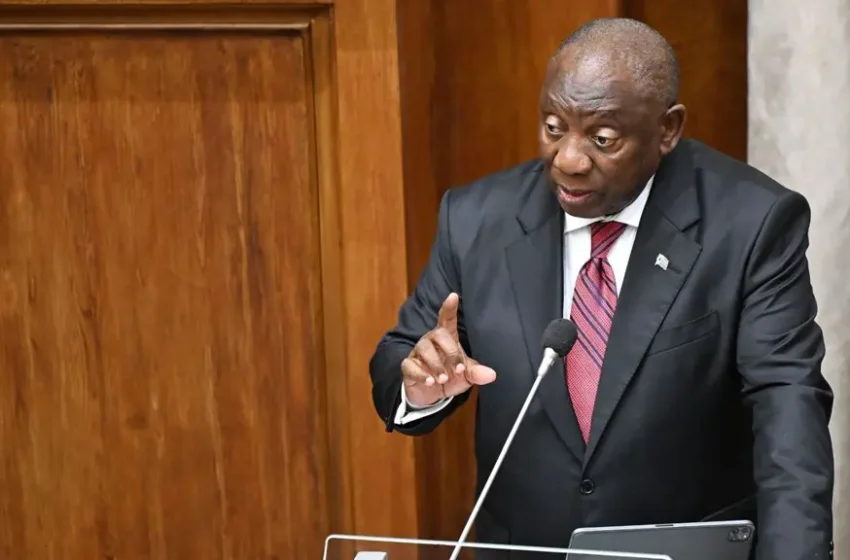What is Azania? The powerful name South Africa may soon adopt

South African President, Cyril Ramaphosa
In a nation still grappling with the ghosts of colonisation and apartheid, the name “South Africa” continues to spark debate. For some, it’s merely a geographic label. For others, it’s a painful reminder of colonial mapping, imposed identity, and the lingering power of the West’s gaze on the African continent.
Now, in 2025, that debate has re-emerged with intensity, as a proposal to rename the country Azania enters South Africa’s legislative discourse.
But what does Azania truly mean? And why has this name persisted for decades in the hearts of liberation thinkers, poets, and politicians?
Azania: More Than Just a Name
“Azania” isn’t new. Its origins trace back thousands of years to ancient Greek and Arabic references to the east African coast. To early explorers, Azania was a distant, lush land located somewhere between what is now Kenya, Tanzania, and Mozambique—a place of trade, mystery, and African richness. Though vague in geography, the word evoked African abundance, independence, and otherness.
In the 20th century, African liberation movements resurrected Azania as a symbolic name for lands that had been colonised. In South Africa, this was particularly powerful. As apartheid deepened and Black South Africans searched for a name that could unite them outside colonial and white-dominated frameworks, Azania emerged not only as a label—but as a rallying cry.
Azania and the Struggle for Liberation
During the apartheid era, Azania was embraced by the Pan Africanist Congress (PAC) and other liberation-aligned intellectuals. It appeared in speeches, manifestos, and underground newsletters. For these thinkers and fighters, Azania represented an African vision of freedom, rooted in dignity, justice, and ancestral identity—untainted by the colonial impositions of Dutch or British rule.
In contrast, “South Africa” was not chosen by its people. It was a directional descriptor—a southern chunk of a continent—named and shaped through foreign conquest, not cultural consensus.
For anti-apartheid radicals and post-colonial theorists alike, Azania signified not just a renaming, but a reimagining: of what the country could be if defined on its own terms.
Why the Name Azania Is Being Suggested Again in 2025
Fast forward to today, the African Transformation Movement (ATM) has formally submitted a proposal to rename South Africa as the Republic of Azania, arguing that the current name still reflects colonial residue. The party’s leader, Vuyo Zungula, contends that decolonisation is not just about land or statues—it must include how we define ourselves, including what we call our country.
The proposal aims to complete a cycle of transformation that political freedom began in 1994. It’s a call to embrace an identity not defined by direction, not tethered to Europe’s maps, but instead anchored in African consciousness.
A Name Laden with Identity, Memory, and Possibility
Names hold power. They define nations, shape history, and project identity to the world. Renaming a country is not about forgetting the past—it’s about reclaiming authorship over the future.
For many, Azania evokes poetry, resistance, and a dream of unity rooted in the soil—not imposed from a compass. It represents the desire to re-root South Africa’s identity in Pan-Africanism, not colonial cartography.
To others, however, Azania feels foreign, even outdated—a relic of a liberation movement not embraced across all communities. Critics argue that the term may not reflect the diverse identities within South Africa today and warn that such symbolic gestures could overshadow urgent issues like unemployment, crime, and inequality.
READ ALSO
South Africa to Azania? The name change proposal dividing the nation
Is South Africa Ready to Be Azania?
Changing the name of a nation is never simple. It’s emotional. It’s political. It’s symbolic. But it also invites a larger question: Whose story does the name South Africa tell—and whose does it erase?
Azania, whether adopted or not, forces South Africans to re-examine what freedom truly means. Is it just the right to vote, or is it the right to self-define, to decide not only how to govern—but how to exist and be remembered?
Even if the name doesn’t change, the conversation is meaningful. It opens up questions about belonging, history, and the unfinished work of transformation. And perhaps, that’s what this moment is truly about.
Azania as an Idea, Not Just a Word
Whether or not Parliament accepts the proposal, the resurgence of Azania reminds us that identity is not static. It is contested, evolving, and deeply political.
In a country that still carries the weight of its past, Azania is not merely a substitute for “South Africa.” It’s a symbol of what the nation might become if it fully embraced its indigenous memory, liberation roots, and pan-African destiny.
As debates continue, so too does the journey—of a nation still deciding what to call itself, and more importantly, who it wants to be.

